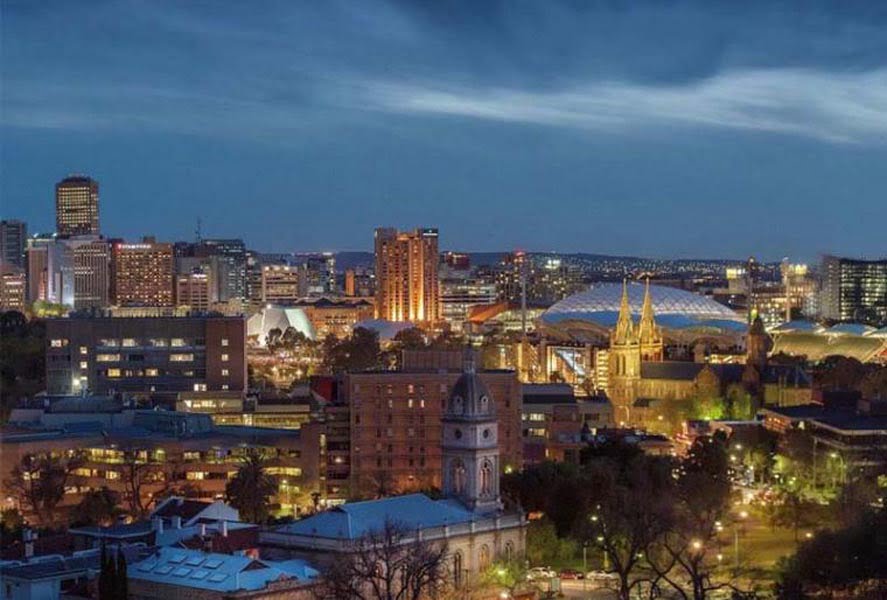South Australia saw a seven-fold increase in total investment funding during the 2018 March quarter, according the latest funding report from Techboard.
The report showed that funding from the previous quarter jumped from less than $7 million to more than $48 million. Much of that can be attributed to the two major capital investments that were made into satellite startup Myriota and software firm Happy Co, with each receiving $19.4 million and $14.1 million respectively.
Grants from the South Australian government also played a major role, totalling close to $4 million, Techboard revealed.

The report indicated a majority of the investments made in South Australia were mainly for firms in three sectors: health and biotech, Internet of Things, and property.
South Australia’s chief innovator Tom Hajdu says a key driver for the growth has been the city’s effort to create a more supportive environment.
“I think what’s going on is that there’s an ecosystem that’s moving, that’s being created. There are now incubators and working spaces that are here. There’s also the Gigabit infrastructure. We also have the largest defence precinct in the southern hemisphere,” Mr Hajdu told InnovationAus.com.
“These series of things are converging all at the right time and that’s creating a systemic change that has resulting in the growth in investment. This is a story of a rising tide.”
In fact, it was Adelaide’s network infrastructure that has attracted Datacom. The IT service provider plans to move more than 100 staff in July to Adelaide.
Lord Mayor Martin Haese said the main drawcard is Ten Gigabit Adelaide, a City of Adelaide-owned project that is delivering connectivity speeds of up to 10 gigabits per second on a fibre-optic network.
“Businesses like Datacom that employ hundreds of knowledge workers in areas including software and technology services are precisely who we are targeting with Ten Gigabit Adelaide,” Mr Haese said.
“Datacom is one of the many businesses we are in discussions with about how Ten Gigabit Adelaide can help them grow and succeed, and we’ve been overwhelmed by the response to date.”
Ten Gigabit Adelaide complements the state government’s GigCity Adelaide, a 250-kilometre fibre optic network that will span across 14 precincts delivering broadband speeds of 1 gigabit per second.
John Lindsay, an advisor to the State Development department and director of cloud consultancy firm Jtwo solutions, said GigCity is a viably more affordable way for businesses to connect to the internet.
“The whole point of GigCity is to provide small companies access to fast broadband without a long term contract and that is highly affordable,” he said.
“You can buy gigabit services in Adelaide, particularly if you’re in the city where there’s lots of service provider and fibre, but you have to sign up to 24 to 36 month long contracts and pay at least a thousand dollars a month,” he said.
Marty Gauvin, chair of the Innovation Investment Committee of the federal Innovation and Science Australia, said part of the attractiveness of Adelaide has been underpinned by a generational cultural shift among businesses, triggered mainly by the global financial crisis and the demise of the local car manufacturing sector.
“If I look back 10 years ago, there were no incubators in our universities, there were no co-working spaces. But now there are co-working spaces and all the universities have startup incubators and that progressively been getting better and better,” Mr Gauvin said.
“The shift that we are probably starting to make is the idea that doing something risky should be lauded.”
Mr Hajdu said Adelaide has the potential to become a globally competitive city with such initiatives in place.
“We’re looking at becoming the next Tel Aviv, the next Berlin, and the next Singapore. Adelaide’s competitors are global,” Mr Gauvin said.
“There are a lot of cities around the world that are in this innovation transformation process and Adelaide has the opportunity to be one of those systems,” he said.
Mr Gauvin agreed that perhaps in the next three to four years, there’s the potential for South Australia to become an exemplary state for the rest of the country.
“We’re not there yet. We’re starting to get things right. We’re starting to build the foundation and that’s pretty good. What we’ve got though is that our trajectory for growth is still strong,” he said.
Do you know more? Contact James Riley via Email.

